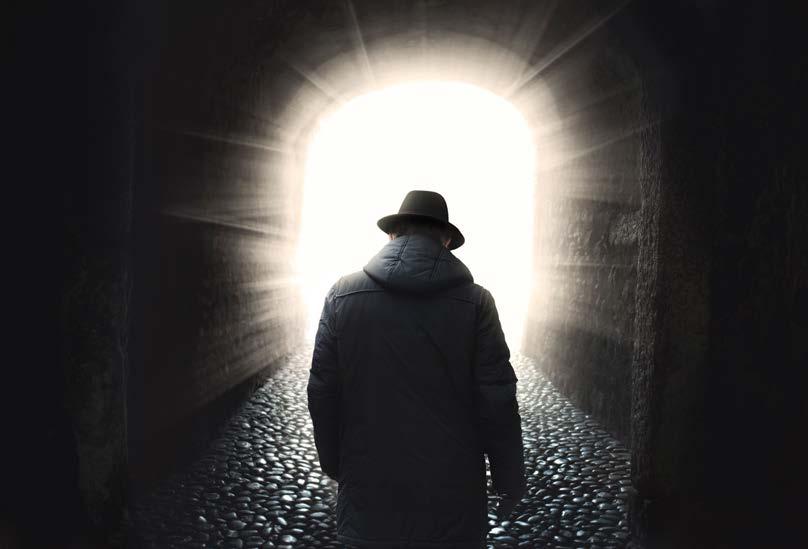Gò0dNews for Everyone
You Don’t Just Wake Up With Pain
T
by Dr. Zach Walker
his title may seem like it is a lie, but the majority of the time,
Short term, or what we call acute pain, isn't necessarily a bad
it is true. I will say you do wake up with pain, but this pain
thing because it brings more attention to the area, is telling you
isn’t just coming out of nowhere. What I mean by this is the
there is tissue damage, and we need to handle that area more
pain you are experiencing in the morning or throughout the day
carefully for the time being. What we do not like is pain that lasts
has been with you for days, weeks, months, or sometimes even
for days, weeks, months, or years (chronic pain). When pain is
years. The body is very good at compensating because this allows
chronic, there is not only damage to the area, but our brains lose
you to go about your everyday tasks. The body/brain does not like
where that area is in space. When this happens, it causes even more
being in pain or off-balance, so these compensation mechanisms
issues. We have talked about brain maps in the past (where our
will enable the brain to carry out day-to-day activities. However,
brains have a map of the entire body), but when we have increases
like we have mentioned previously if you ignore something for too
in pain these maps get distorted and can cause even more pain or
long, it will eventually come back with a vengeance, and this is what is happening with many of our symptoms, pain is no exception. Let's delve more into this a little more. Like we talked about last week, pain is really experienced in the brain, and it is up to the mind to interpret that painful stimuli (nociception) and give a characteristic, location, intensity, etc. Sure, there are times when we sprain an ankle, and there is immediate pain associated with that, and most of the time, we put ice on it and rest the area for a certain amount of time. What we are talking about is pain that we don’t take care of from old injuries such as back/neck pain, hips, shoulders, or that is created from compensation mechanism(s). We will use an example from past posts. If we cannot use proper eye movements (please read our blog post on balance), this can create more neck activation, a form of our compensation
instability to that area. One of the best ways to prevent any of this
mechanism, to allow us to look at what we want to see in the
from happening is to listen to our bodies, take action when we do
world. This sounds like a good idea, and it can be for a limited
have any injuries, and through chiropractic neurology.
time, but this will eventually create neck pain since the neck is
How pain can create other issues:
designed for constant movement (170,000 times a day). You can think of the pain that you are experiencing as a culmination of events leading up to you feeling pain. Again, these
• Chronic pain causes an increase in tissues damage and • The more pain = decreases in our brain maps
• When we have pain it causes increases in compensation
events can be in the form of past injuries, overuse injuries, or
mechanisms, but that eventually leads to pain and
compensation mechanisms. Also, if you think about it there were
instability in other body areas.
probably many different ways the body was trying to tell you that
• Movement is the best way to update our body maps; if we
you need to take better care of yourself. Some of these signs could
have pain, we tend not to use that area, and this causes less
be feeling more tightness or stiffness in a particular body part or
movement in that are.
just globally, feeling like that area is functioning correctly, or range come together, and the brain cannot handle them anymore that we start having more pain or pain symptoms.
40 // April 2020
About The Author
of motion (ROM) has been decreased. It is when all of these signs Dr. Zach Walker is a chiropractic neurologist in the Ringgold, Georgia, area. He utilizes a chiropractic brain-based module to help his patients. He is the owner of BrainSpineConnection.














